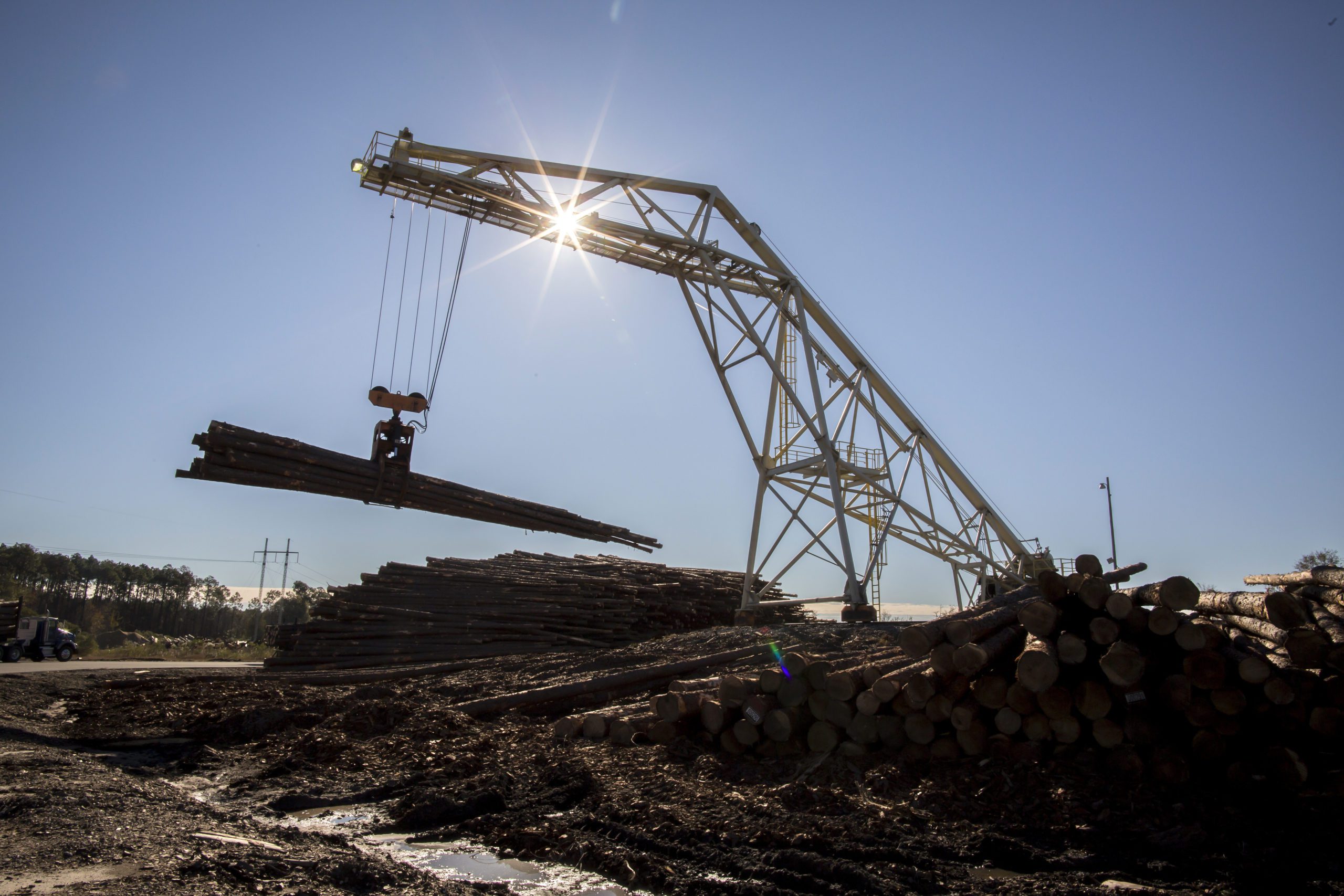Forests account for more than two-thirds of the land area in the state, and Georgia leads the nation in privately-owned, commercially-available timberland, with 22 million acres. (Stephen B. Morton/Georgia Ports Authority)
Wood pulp, paper, paperboard push growth to 6 percent
While many cargo categories have seen struggles related to COVID-19, strong demand for forest products at the start of 2020 has meant increased trade in these commodities. The Port of Savannah handled 78,486 twenty-foot equivalent container units of forest products, an increase of 6 percent or 4,470 TEU, in the first two months of the year (the latest period for which containerized commodity data is available).
Wood pulp, paper and paperboard drove most of the growth, with wood pulp volumes increasing by 25.3 percent (7,225 TEUs) during January and February compared to 2019, for a total of 35,751 TEUs. Similarly, paper and paperboard grew from 26,107 to 31,777 TEUs during the first two months of the year, an increase of 21.7 percent, or 5,670 TEUs.
“The paperboard and containerboard are used for packaging of products you see on your store shelves and for making much needed boxes that are in high demand due to the growth of e-commerce, especially during the COVID-19 pandemic,” said Plastic Express President and CEO Ray Hufnagel. The company, best known for packaging and transporting resins and other plastic goods, moves other commodities through its subsidiary, PX Services, to global destinations via the Port of Savannah. “The wood pulp we receive is a high purity cellulose specialty product that is used in pharmaceuticals, among many other products.”
March numbers for GPA commodities are not yet available. Anecdotally, however, port customers have noted continued strong demand for commodities such as paper and paperboard.
“Domestic paper sales are up due to the COVID 19 rush,” said David Porter, regional sales manager at GPA. “Georgia Pacific is looking to be up 15 percent for the fiscal year and Graphic Packaging up 10.5 percent. Driving this growth is the demand for more food-grade boxes. As more people stay home, the demand for these types of products has increased.”
The outlook for the export of logs is also looking positive as trade deals have reopened the market into China.
“Demand is skyrocketing, and many of the log providers are scrambling to meet demand,” Porter said. “We have multiple companies looking at the Appalachian Regional Port and another working with GLOVIS in West Georgia to match-back empty containers from KIA. Some log exporters are seeing growth of 200 percent to 300 percent.”
Savannah’s forest products volumes may also be positively impacted by the entry of Plastic Express into the local market handling these commodities. The company’s recently opened Building 1 is now receiving railcars of paper and wood pulp. Container stuffing operations for forest products began in February.
“Since those initial carloads, we have seen growth through our facility and in just a few months are up to around 700 twenty-foot equivalent container units with a lot more growth in the pipeline,” Hufnagel said. “The challenges with COVID-19 have impacted businesses and consumers alike, however the need for paper to be used for packaging products and wood pulp for pharmaceuticals, toiletries, and diapers are still very much in demand.”
Plastic Express began its initial operations in Savannah with 1.1 million square feet of space and 265 rail car spots, with nearly half of that available to non-resin commodities. The company has now started construction on Building 2 in Savannah, adding another 1.2 million square feet of space and 235 rail car spots, again with roughly half of the new capacity available to forest products.
Georgia mills provide the largest share of paper products arriving at the Savannah warehouse, with the remainder coming from Florida and South Carolina. The company is also competing for forest products business out of Alabama, Arkansas and North Carolina.
Hufnagel said access to Class I railroads CSX and Norfolk Southern via shortline carrier Georgia Central extends the company’s reach to customers across the U.S. Southeast. Key destinations for the paper and pulp shipments include South America, Asia, India and North Africa.
“Good news for the forestry industry not only benefits the Georgia Ports Authority, but the state economy as a whole,” said GPA Executive Director Griff Lynch. “The industry spans the state of Georgia, from landowners and pulpwood growers, to major mills and the thousands of people they employ.”
